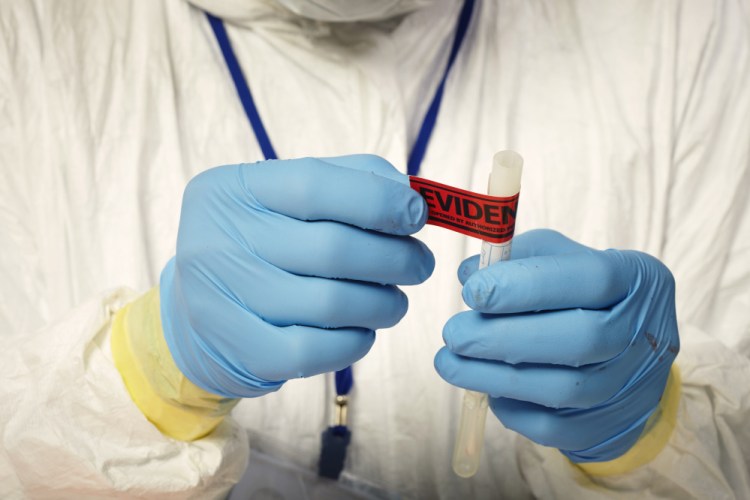Sexual assault is a vastly underreported violent crime whose perpetrators are relatively rarely brought to justice. Changing this sorry situation is the focus of a praiseworthy push to expedite the handling of evidence collected from victims – a national movement that has come to Maine, with three rape testing kit- related bills in Augusta this session.
But the bills raise issues that are beyond their scope to address, and we stand with Maine’s victim advocates in urging legislators to put aside the measures for now and launch a comprehensive review of the system instead.
Over 175,000 unprocessed rape testing kits exist in the 38 states that keep track of the problem, according to the nonprofit End the Backlog initiative. Sometimes, there’s a processing backlog because the rapist has been identified or is already behind bars. The issue can also be one involving cost – or an investigator who doubts the victim’s story and has set the case aside. But regardless of the reason, the fact that many rapists strike repeatedly means that processing untested kits can help identify serial offenders and exonerate the innocent.
How big is the backlog in Maine? It doesn’t seem to be much of a problem, the Maine Coalition Against Sexual Assault’s Destie Hohman Sprague recently told legislators at a hearing on a bill to create a computerized statewide system to track the kits’ status. The rape kits that are needed in prosecutions are handled quickly, said Sprague, while the others are generally stored until long after the offender is prosecuted.
The coalition has been neutral on both this bill and another proposal, which would set standards for access to and retention of rape kits. (A third bill, which gives the State Police a six-month deadline for processing each kit, won’t have a hearing until April 5.)
But neutrality doesn’t mean inaction. Sprague and the coalition’s executive director, Elizabeth Ward Saxl, have made an excellent case for studying how Maine is dealing with rape testing kits before deciding whether and how to change the process.
Among their questions: Is there a less administration-heavy way to assess the status of Maine’s rape kits? Are current processing practices causing problems with sexual assault prosecutions? How can authorities notify a victim that their rape kit is about to be destroyed while still honoring their right to privacy?
It’s been nearly 20 years since Maine last examined how it deals with evidence in sexual assault cases – the state introduced its uniform rape testing kit at the recommendation of the legislative panel that looked into these issues in 1999. It’s high time that legislators, sexual assault survivors and victim advocates, police, prosecutors and other stakeholders examine how the system that was set up is working and what it can be doing better.
Send questions/comments to the editors.



Success. Please wait for the page to reload. If the page does not reload within 5 seconds, please refresh the page.
Enter your email and password to access comments.
Hi, to comment on stories you must . This profile is in addition to your subscription and website login.
Already have a commenting profile? .
Invalid username/password.
Please check your email to confirm and complete your registration.
Only subscribers are eligible to post comments. Please subscribe or login first for digital access. Here’s why.
Use the form below to reset your password. When you've submitted your account email, we will send an email with a reset code.